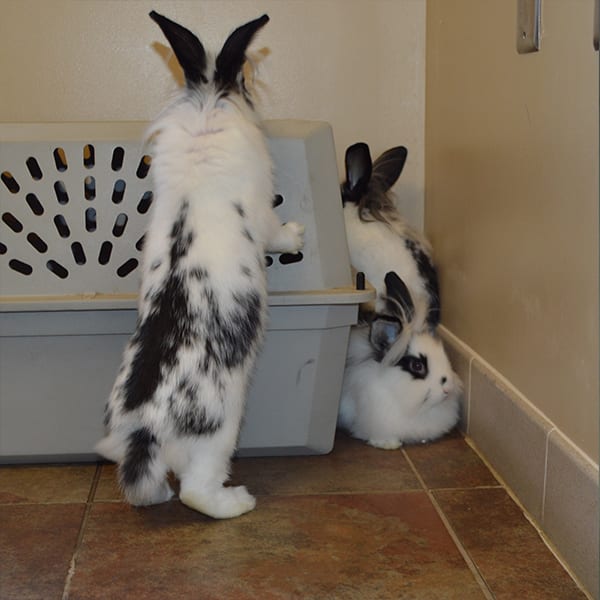Because gastrointestinal and dental issues are so common in rabbits, we know that many rabbits are not receiving the proper diet, which plays a major role in managing gastrointestinal and oral health. Rabbits are similar to horses in that they use their colon to break down all of their food into nutrients. Fiber is an essential part of the rabbit food because it provides a healthy bacterial population within the colon, which allows for healthy digestion. Rabbits should be snacking on grass hay throughout the day to keep the gut moving and to prevent blockages.
Therefore, about 90% of your rabbit’s food should consist of grass hay or timothy hay (oat grass, bluegrass, and ryegrass can be included for variety), while the remaining 10% can include vegetables, fruits, and/or pellets. Pellets should not make up too much of your rabbit’s diet, as they can cause an imbalance of GI bacteria (known as dysbiosis). Last but not least, your rabbit should always have access to fresh water.
Vegetables your rabbit can enjoy include dark leafy greens, kale, spring greens, and dandelion greens, to name a few. You can mix them up from week to week to give your pet some variety.
For more in-depth information that can benefit your rabbit’s personal needs or recommendations on which other rabbit foods you can offer your pet, give us a call today at (770) 479-7141.

